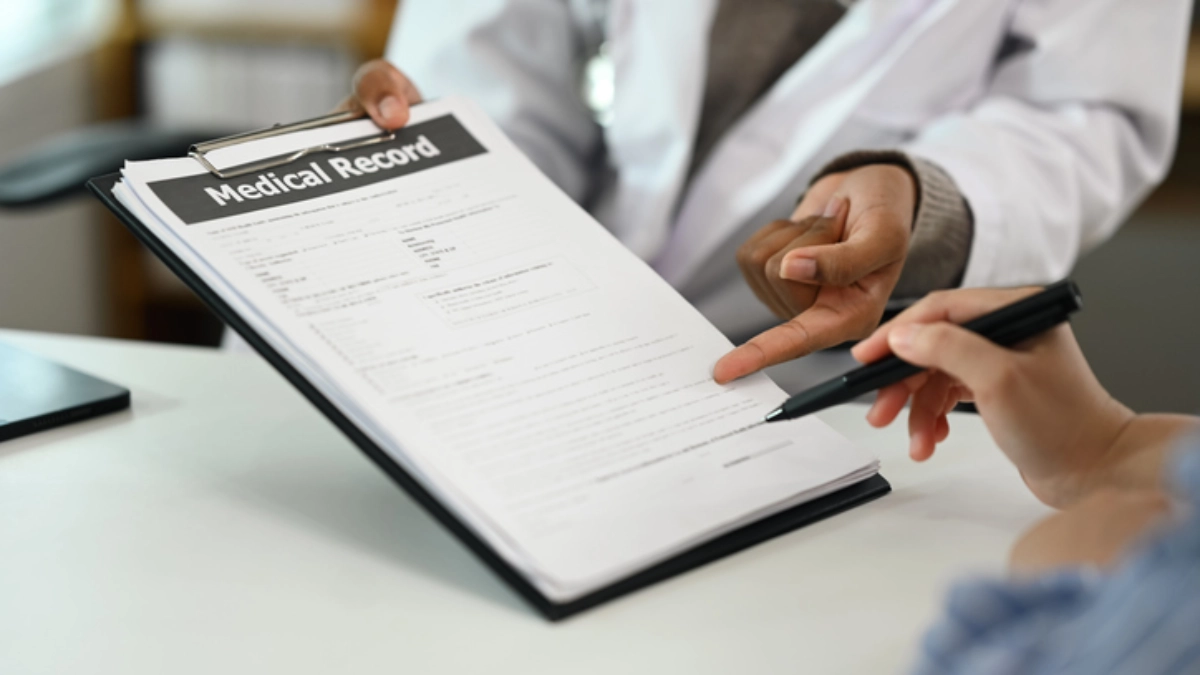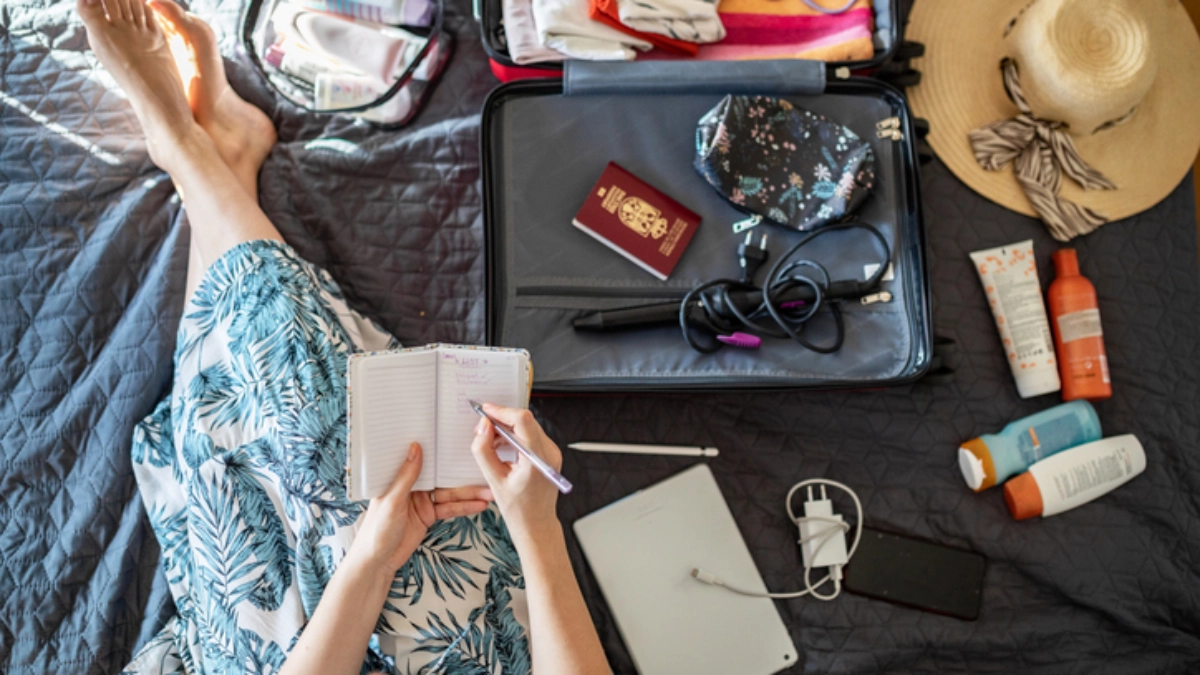GLP-1 weight loss travel insurance: your complete cover guide

If you're taking weight loss medication jabs like Wegovy, Ozempic, or Mounjaro, it is important to mention this when you get a quote for travel insurance. They’ve become more common in recent years, but they’re still prescription treatments, which means you’ll need to declare them to make sure you’re properly covered by your travel insurance while taking them.
At Staysure, we've helped millions of customers with pre-existing medical conditions travel with confidence since 2004. Together with expert insight from NHS and private GP Dr Asimah, we’ll guide you through what to consider before and during your trip.

Why you need to declare GLP-1 weight loss jabs when buying travel insurance
An estimated 1.5 million people in the UK are now using weight loss GLP-1 medications. These treatments can be life-changing, but because they’re prescription drugs, they still need to be declared when you buy travel insurance. Even if you’re taking them for weight management rather than a diagnosed medical condition, leaving them off your medical declaration could affect your cover if you become unwell abroad.
Not declaring your treatment, could cause problems later, such as:
- your policy being invalidated
- a claim being rejected if your illness or side effects are linked to the drug
- no financial protection against foreign medical bills
Declaring all relevant medical information is your responsibility when buying travel insurance but we’re here to help guide you through to make it easy for you.
What we need to know to consider your travel insurance cover
Staysure can consider cover for GLP-1 medication if:
- ✔ the medication is prescribed by a GP or referred through a registered pharmacy
- ✔ it's noted on your GP medical records and part of a supervised weight management programme
- ✔ you take the medication as prescribed
- ✔ your GP has confirmed you’re well enough to travel
- ✔ you understand how the treatment may affect you while travelling
Cover is subject to medical screening and acceptance by our underwriting team.
How to apply for travel insurance when you need to declare weight loss medication
When buying travel insurance, it’s important to declare your taking weight loss injections (GLP-1 medication) – such as Ozempic, Mounjaro or Wegovy – along with the condition it’s prescribed for. The medication should be listed as a prescription drug, while the underlying condition (for example, type 2 diabetes, obesity or weight management) must be declared as a pre-existing medical condition. Think of this as a three-step process:
Step 1: Have your details ready
Before starting your quote, make sure you have your prescription details and basic medical information to hand – such as the name of your medication, dosage, and the condition it treats. This helps keep your quote process quick and accurate. For more details, see our section on medical records.
Step 2: Complete medical screening
During your quote, you’ll be asked about any medical conditions and prescription drugs you take. Simply declare your weight loss medication and the condition it’s prescribed for, whether that’s diabetes, weight management or something else. Our online screening tool (or a member of our team if you’re calling) will guide you through the questions to make sure your policy includes the right level of protection.
Step 3: Get your quote
Once your details are submitted, we’ll confirm whether we can offer cover based on your individual medical circumstances. If approved, you’ll see your quote straight away and can choose your level of cover online – or over the phone.
Start your quote now or call 0333 006 8052 to speak to our team on the phone

What's covered and what's not
Cover may be provided for:
- properly prescribed medications with complete GP documentation and medical supervision
- supervised programmes where GLP-1s form part of medical weight management programme
- declared conditions - both medication and underlying condition disclosed
- legitimate prescriptions from registered UK pharmacies or GPs
- medication is taken as prescribed
Cover can’t be provided for:
- unregulated purchases i.e. medication obtained without proper medical oversight from unregulated suppliers
- any GLP-1 drugs use not disclosed on your travel insurance
- self-medication without professional supervision
- off-label use without proper medical records and GP awareness

Important medical records and documentation needed for travel insurance
You won’t usually need to submit medical documents when applying for travel insurance, but it helps to have certain details to hand when completing your medical screening declaration. We may also ask for supporting information if you make a claim or if further checks are needed.
Some essential paperwork that may be requested in the event of a claim:
- A copy of your prescription from a GP or registered pharmacy.
- Or written confirmation from the regulated online provider, if applicable.
- Medical records report from your GP. (Your GP’s reception teams will provide this on request and you may need to pay an admin fee)
We may request additional information, such as
- Recent HbA1c blood test results for diabetic patients.
- Current weight and BMI records.
- Any relevant correspondence from your specialist clinic or endocrinologist.
Information for safe travel with GLP-1 medications
We’ve teamed with Dr Asimah Hanif, a UK GP who prescribes GLP-1 treatments, to make sure this guide is clinically accurate and reflects best practice around medical disclosure.
Dr Asimah also shared her top tips for travelling with GLP-1s – including what to know about taking your medication through airport security.
Read on for her expert advice.
Time zone management
If you’re changing time zones, try to keep your injection schedule as consistent as possible.
- Weekly injections: Stay on the same day each week, adjusting the time gradually if needed.
- Daily injections: Aim to keep doses roughly 24 hours apart.
- Keep a record: write it down or put it in your phone if it helps you stay on track.
If you’re unsure when to inject, seek medical advice before adjusting it yourself. Missing a dose is generally safer than taking one too soon.
Drug interactions during travel
Be mindful of how certain medicines and other substances can interact with GLP-1 treatments:
- Alcohol: Can increase gastrointestinal side effects and raise the risk of low blood sugar.
- Ibuprofen: When combined with dehydration, may increase the risk of kidney injury.
- Oral contraceptives: Slower digestion may affect how these are absorbed.
- Paracetamol: Some GLP-1s can influence how quickly it’s absorbed.
Temperature storage requirements
GLP-1 medications need careful temperature control to stay effective. How you should store them depends on whether your pens are unopened or already in use:
- Before opening: Store at 2-8°C in refrigeration.
- After opening: Maintain below 30°C at room temperature.
Dr Asimah notes:
"Car temperatures can reach 40-50°C, destroying medication effectiveness. Heat above 30°C or freezing destroys efficacy even if the medication looks normal."
When travelling:
- keep medication out of hot vehicles
- use insulated travel cases when necessary
- request hotel rooms with refrigeration facilities
- carry medication in hand luggage to avoid cargo hold temperature extremes
Sharps disposal during travel
- Needles require proper disposal containers.
- Some prescribers provide travel-sized sharps containers.
- Disposal regulations vary by destination.
- Confirm disposal arrangements with your prescriber before travel.
Dr Asimah explains:
"Clear guidance on international needle disposal is limited. Clarify this with your prescriber before departure."
Emergency medical situations
Contact local emergency services immediately if you experience:
- severe abdominal pain or persistent vomiting
- pancreatitis indicators
- allergic reactions or severe dizziness
- rapid heart rate or fainting episodes
Emergency numbers vary between countries, so it’s worth noting the local number before you travel. For example, dial 112 in Europe or 911 in the USA.

Extra things to check before you travel
Medication and import rules for different countries
Some countries have strict rules around bringing prescription medication across their borders. It’s important to check these before you travel, as GLP-1 treatments may be classed as controlled or restricted in certain destinations.
Examples include:
- UAE: Controlled medication approval may be required through the Ministry of Health & Prevention.
- Japan: An import certificate, known as a Yunyu Kakunin-sho, is needed for injectable medication.
- Singapore: Some formulations are restricted and must be declared on arrival.
- Australia: Prescription rules apply to many medications that are available over the counter in the UK.
Always verify the entry requirements for your destination well before you travel, ideally through the country’s official health or embassy website.
Travel conditions to plan for
Certain types of trips may need a little extra preparation. It’s worth giving particular thought to:
- Remote locations: Medical access and refrigeration may be limited.
- Extreme climates: Both heat and cold can affect medication storage and general health management.
- Regions with food safety concerns: Poor food hygiene may exacerbate gastrointestinal side effects.
How to get support while you're away
If you need help abroad, our 24/7 emergency assistance team will be there to support you. Here’s how we can help and what to do in different situations:
When to contact Staysure Assistance
- Life-threatening emergencies: Get treatment immediately. Once you or a travelling companion is able, contact us within 48 hours.
- Hospital admission: You must notify us within 48 hours of admission to any hospital abroad.
- Outpatient treatment over £350: Call our helpline before treatment if costs are likely to exceed £350. We'll provide a pre-approval code.
- Non-urgent medical needs: For clinic visits or pharmacy needs, contact our helpline first. We can help you find appropriate local care and confirm what's covered.
Advice from Dr Asimah on seeking medical help abroad
Dr Asimah advises:
"Let the medical professional know you're taking the medication, even if your illness seems completely unrelated. The side effects of GLP-1 medications can contribute to a wide range of symptoms making you feel worse so it's important to tell them so they can assess you properly."
Foreign medical staff may be less familiar with these newer medications. Having your prescription details and GP records readily available helps them provide appropriate care.
Making a claim
In the event of a claim you’ll need all receipts and documentation to submit in support of your claim. If you received treatment abroad, keep all:
- medical reports from treating doctors detailing your care
- all invoices, receipts and bills for treatment
- documentation for additional costs - extra accommodation, delayed return transport
- pharmacy receipts if medication replacement was needed
Request a claim form as soon as is practical. Complete it carefully and include all relevant receipts, medical reports and supporting documents. Providing full, accurate information helps us assess your claim efficiently and avoid any delays.
Once we’ve completed our review, we’ll confirm the outcome and arrange payment for any approved costs, minus your policy excess. Timeframes for assessment and updates are outlined in your policy documents.
Travel insurance for weight loss injections FAQs
I buy my medication online with a prescription - is this acceptable?
You need proof that your medication is part of a proper medical programme, not just a one-off purchase. Ideally, your NHS GP should have it on your records. If not, get written confirmation from whoever prescribed it - ask your online provider for a letter or email that documents your prescription.
Do I need to declare Mounjaro if I'm using it for weight loss, not diabetes?
You’ll need to include Mounjaro in your medical declaration, even if you’re using it for weight management rather than diabetes. It’s a prescription medication, so we’ll ask about it as part of your health screening, along with the condition it’s prescribed for.
I've stopped taking weight loss injections - do I still need to declare?
If you’ve recently stopped taking weight loss injections, you should still mention them in your medical declaration. They’re part of your medical history and including them helps make sure your policy reflects your health accurately. You’ll need to declare them if you’ve used them within the last two years.
Will my premium go up if I declare my GLP-1 medication?
Not necessarily. Your premium is based on your overall health, medical history and individual circumstances not just one medication. Declaring your treatment helps us give you an accurate quote and make sure your cover matches your needs.
GLP-1 travel insurance with Staysure
If you’re taking GLP-1 medication, you can still apply for travel insurance with us. As long as your treatment is prescribed, declared and managed under medical supervision, we’ll consider cover through our simple medical screening process. We’ve been helping people with health conditions travel with confidence since 2004 – and we’re here to help you do the same.
Prefer to speak to someone?
Call 0333 006 8052 and our friendly team can guide you through more complex medical situations.
Travel insurance for GLP-1 medications requires medical screening and acceptance. All quotes depend on complete medical disclosure and individual risk assessment. This information provides guidance only - verify your specific policy terms and contact our team for coverage questions.



